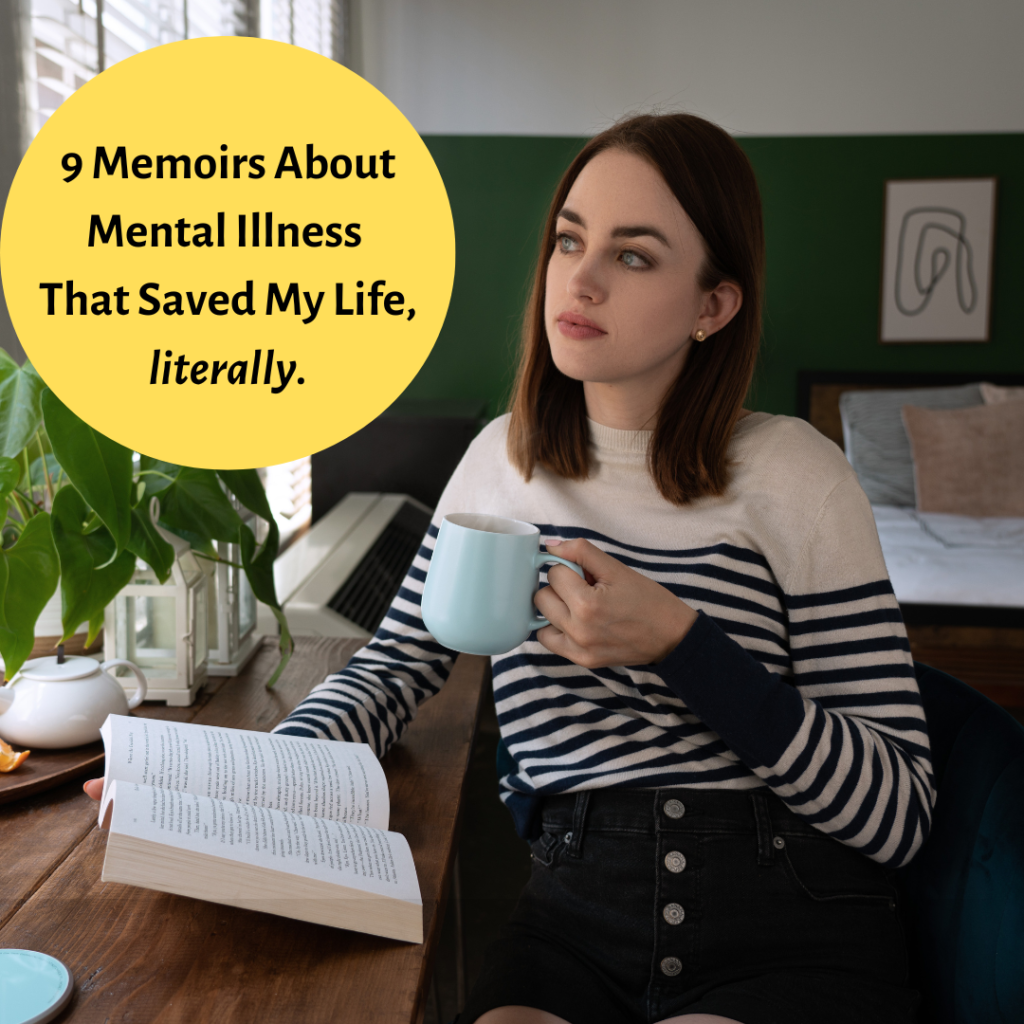Reading these 9 memoirs about mental illness saved my life. I don’t say this to sound dramatic, they did. Growing up in the South during the 90s, mental illness was very stigmatized. Therapy was a sign of weakness. You didn’t get it, and IF you did, you certainly didn’t tell anyone about it. Taking medications was another sign of weakness. If you heard voices in your head, then you probably weren’t getting enough exercise or greens in your diet.
Mom, you forget to eat your broccoli again!
When my mother started demonstrating abnormal behaviors, I sensed something was wrong with her, but I had clue as to what? I never heard of the word mental illness in my life. As a child, I had been taught to contact the police in case of an emergency. But did talking to the walls count as an emergency? What about sleeping for days?
On top of all this strife, I was also feared if I told the wrong person about mom’s behaviors they would lock her up in a mental institution where she would never return, proceed to get worse, or disown me for ruining her life. I felt hopeless, plagued by the reoccurring thought: WHAT’S WRONG WITH MY MOM!?
Worse than feeling confused, I felt utterly alone. It appeared there was nobody else in the world with a mother like mine except for me. Then something incredible happened. I discovered memoirs about mental illness.
The following 9 memoirs are books that changed and saved my life.
What kept me sane during my years of confusion and chaos, living with my undiagnosed schizophrenic mother, are the following memoirs. These brave writer’s stories were the first step toward healing my shame and pain. Through their words, I realized I am not alone. Most importantly, these books helped me to better understand what was going on inside my mother’s mind, giving me the strength to share my own story.
9 Memoirs To Better Understand Mental Illness:
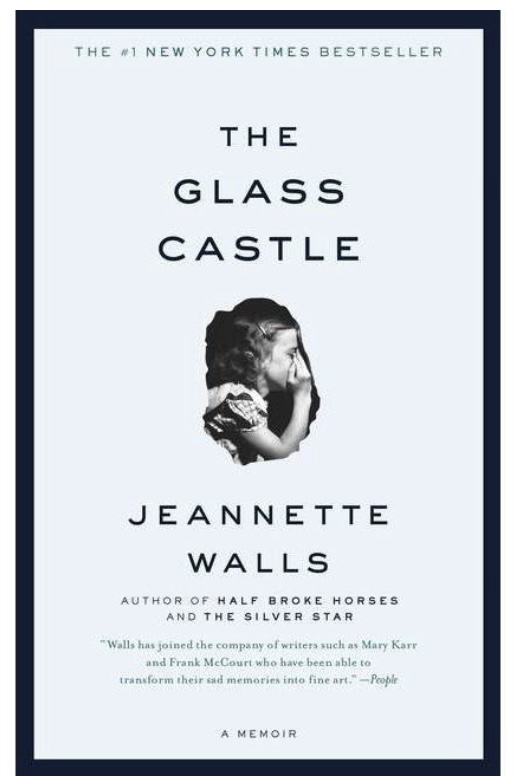
We must all give it up to Jeannette Walls for pouring her heart out into this book. Jeanette is the daughter of two parents with mental health conditions. In her memoir, The Glass Castle, she tells her story, starting with her childhood and going though adulthood, revealing what it’s like to be raised by two undiagnosed mentally ill parents. What really sets her memoir apart is that the deep-rooted fear many children of parents with a mental illness have – will my mother or father end up homeless – becomes her reality.
While Jeanette is flourishing in a career as a journalist her parents end up on the streets. Jeannette’s heart-wrenching story helped me to feel seen and heard like never before. Although this is her life story, it’s one children of mentally ill parents will greatly benefit from reading to better understand their own suffering. Her words gave me strength to have grace for myself, ultimately realizing I can do everything in my power to help a mentally ill loved one, but in the end I can’t save them.
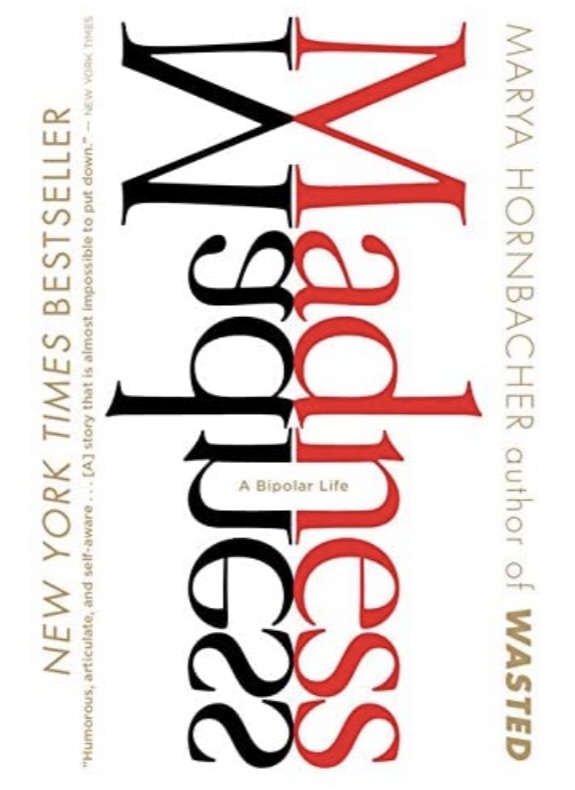
In, Madness: A Bipolar Life, Marya’s internal dialogue gives a firsthand account into what it’s like to be someone living with bipolar disorder. This book allowed me to better understand my mother’s bipolar mood swings. In turn, it helped heal a lot of anger I had toward my mother as I realized her mega highs and dark lows were as traumatizing and painful for her as they were for her children. If you have a loved one with bipolar disorder, I beg of you to read Madness: A Bipolar Life.
Marya’s story gives the reader a window into the crippling effects bipolar disorder has on one’s self-esteem. It also reveals how hard somebody living with bipolar disorder must work in order to combat the dark thoughts they have about themself. What I really enjoyed reading about in Marya’s story is how this woman, living with bipolar disorder, is also laced with brilliance. Her artistic mind and talent for writing are incredible, reminding us people with mental health conditions have the ability to create, work, and do amazing things once their mental health wounds are treated properly.
Get “Madness: A Bipolar Life” HERE!
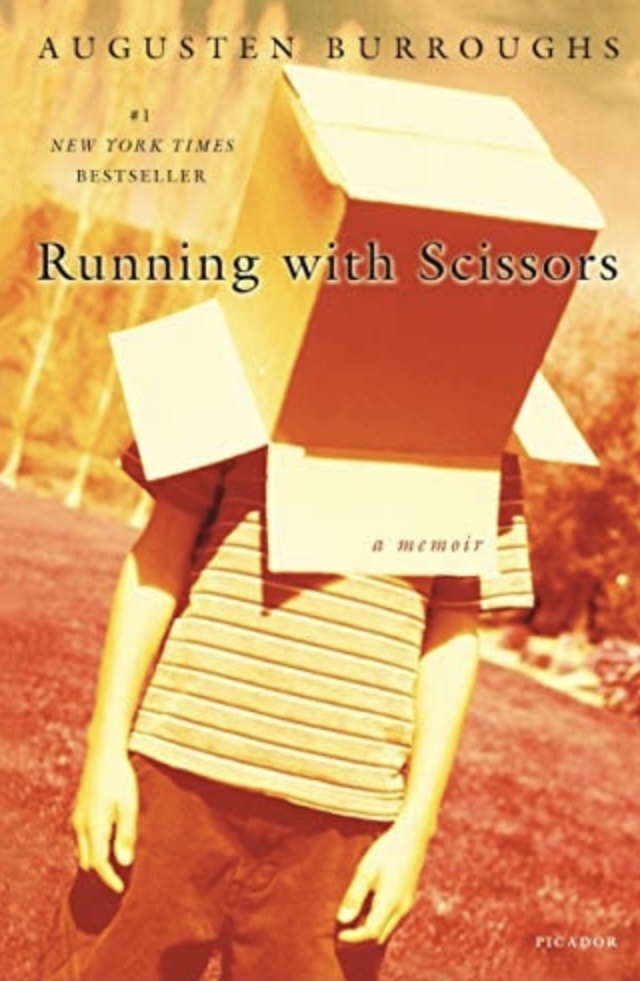
If you’ve heard of Running with Scissors, you’ve probably heard an entire range of opinions about this book. Before I read this book for myself, I could never understand if people enjoyed this book or not? After reading it for myself, I understand the hesitation to talk about it. Augusten’s story takes place during his childhood, which is alarmingly bizarre. His youth is filled with terribly disturbing stories, including sexual molestation and at one point pooping in a box. The delusional adults around him make it that much worse.
Augusten reveals these disturbing stories with a humorous eye, which honestly made me cringe more, but there is something to be said for this. It’s this: when you’re a kid nothing is dysfunctional about your family if it’s all you know. You only understand you were living in dysfunction until you’re out of it. Another insight about Augusten’s story that helped me understand mental illness better is the delusional world his mother lives in. Augusten’s mother spends most of her days chain-smoking away, but in her world she is a successful poet the world adores. The way his mother viewed her life helped me recognize my own mother’s delusions found within mental illness.
Get “Running with Scissors” HERE!
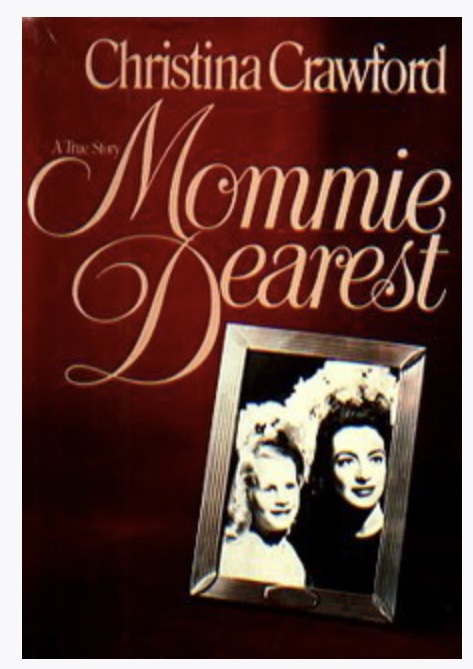
If you are a daughter of a mother with a mental illness, you can’t go through life without reading Mommie Dearest. This book is written through the eyes of Christina Crawford, TV and film actress, Joan Crawford, adoptive daughter. This book broke my heart because it showed how much work a woman will go through in order to hide a mental health condition. Joan Crawford steps into the world with a face full of makeup, fashionably dressed, and always with a delightful smile plastered on her face. Behind closed door’s she is somebody else, a monster to say the least.
I related to Christina’s relationship with her mother on every level because my mother fooled the world into thinking she was fine too, when she was really not. What I found really healing about this book is reading about Christina’s life as a teenager growing up with her mom. The torment, confusion, criticism and pain Christina endured as a teenager helped me to finally find validation for my own afflicted feelings. This memoir is a must read for all women because it gives a glimpse into one of the sneakiest components of a mental health condition in a female, the ability to show up put together when you’re actually suffering.
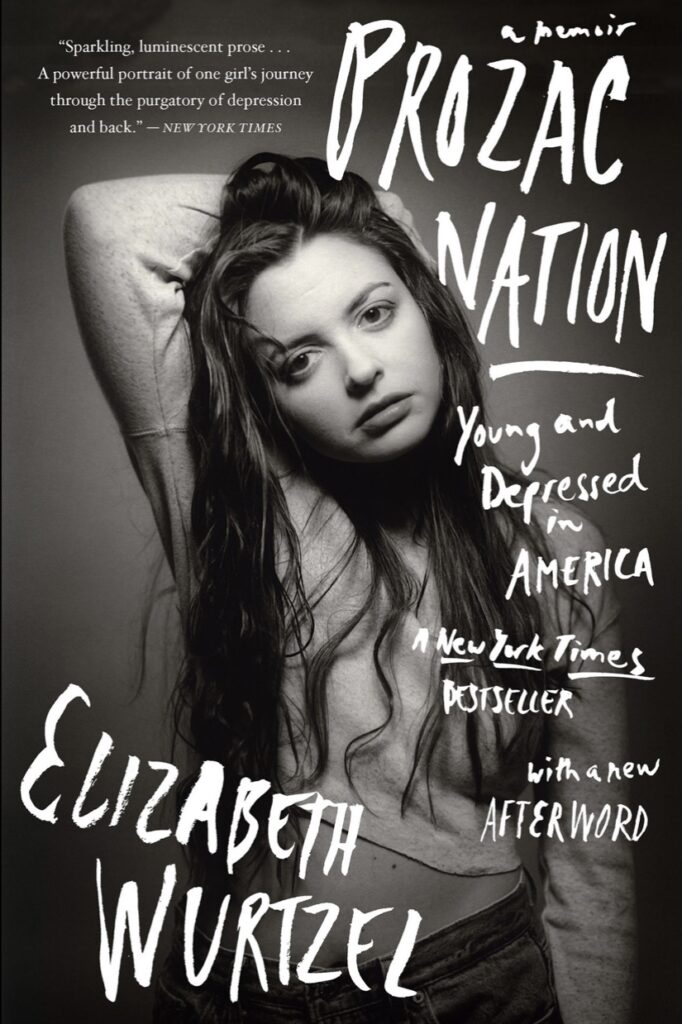
Like Running With Scissors, readers had a wide range of opinions about Prozac Nation. Negative reactions to this book are often attributed to the long, gloomy depressive rants Elizabeth writes about. However, IF you have ever been depressed or have lived with a depressed person, the dark negativity Elizabeth lingers in won’t come as a shock to you. In fact, I found it to be quite insightful to better understand my mom and her own depressive moods.
Prozac Nation demonstrates how depression sparks a multitude of other unhealthy habits or mental health conditions. Another notable component to this book is the fact Elizabeth is enrolled in Harvard University during this time in her life. So often we associate mental illness with homeless people, but mental illness effects 1 in 4 people. This means one of your successful college professors or financially well off bosses is struggling with a mental illness right now. Prozac Nation reminds us mental illness doesn’t discriminate. It can impact any one of us at any time if we are not aware how to nourish and heal our minds.
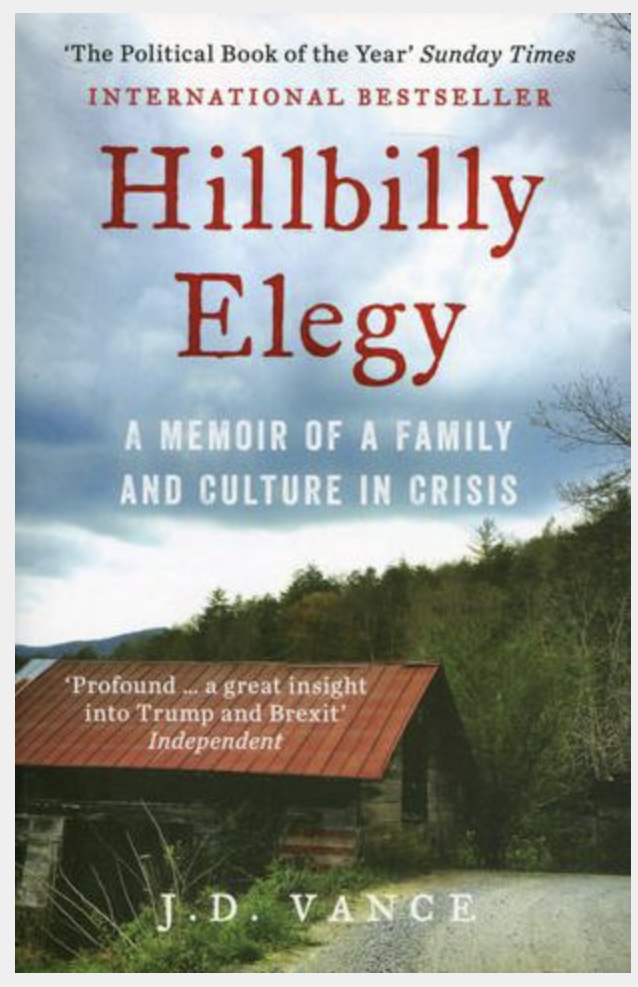
Hillbilly Elegy is one of the newer memoirs on the market, but it’s a crucial one to mention because it shows how resilient the child of a mentally ill parent must be in order to get anywhere in life. It also addresses how one’s culture and environment impacts mental health. J.D’s story bounces between two low-income, uneducated rural neighborhoods in Kentucky and Ohio. As a result of where he is being raised, he is enrolled in a terrible school system. His father is out of the picture, and his mother is often on drugs. This is not the recipe to go far in life, but eventually J.D. gets out.
When he is accepted into college, we hope life will give him a break, but this isn’t the case. On a typical night he sleeps 4-5 hours as a result of having to work and go to class full-time. His fight or flight lifestyle is intense. However, children of mentally ill parent’s will be able to relate when J.D. explains this grueling, work-heavy lifestyle didn’t effect him nearly as much as the constant worries and fears he had for his mentally ill mother back home. This memoir is a must read for people to understand how much anxiety a kid from a mentally ill family lives with, and how much perseverance they must have to get anywhere in life.
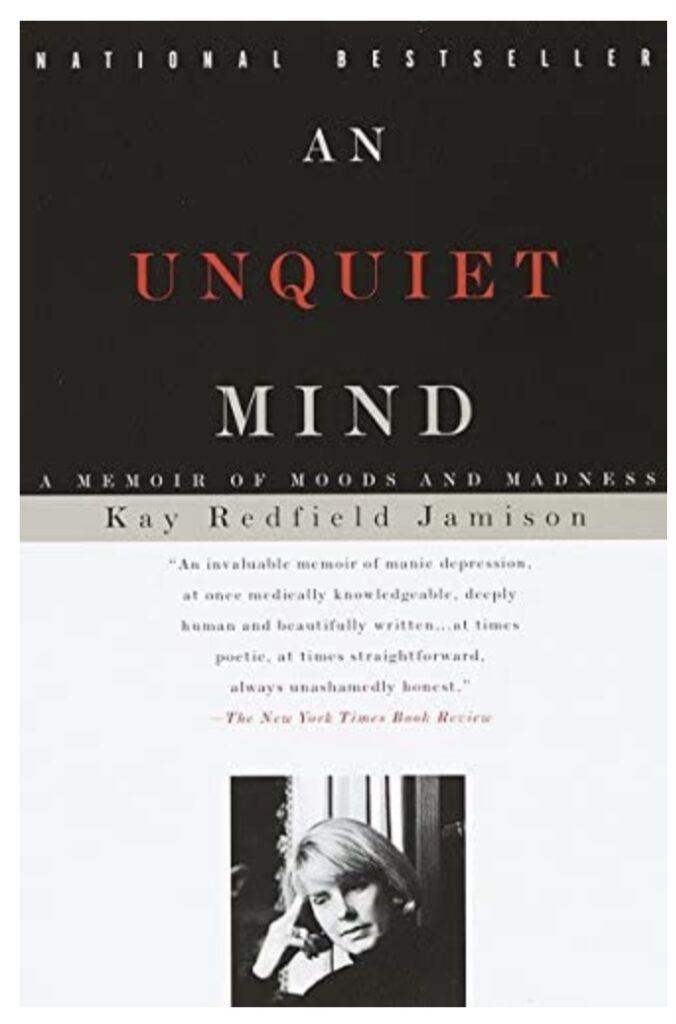
This book is not so much a story as it is a detailed journal of Kay’s personal journey living with bipolar disorder. What makes this book a powerful read is Kay also happens to be a clinical psychologist. As a result, she documents her behaviors and then dissects them. Her words are whirlpools of wisdom for those struggling with a mental illness or who are struggling to understand their loved ones.
With breathtaking honesty, Kay documents the loneliness that comes with having a mental illness. Perhaps, the worst trait of all is the isolation being mentally ill sparks and the madness that arises as a result of being alone with your thoughts. Another notable aspect about An Unquiet Mind is the use of lithium to help stabilize Kay’s moods. If medication is something you are frightened or uncertain about, Kay’s autobiography gives a deep dive into what medication does to a person. Her story proves how, with the right drug and dosage, a mind can be balanced to help lead a functioning life.
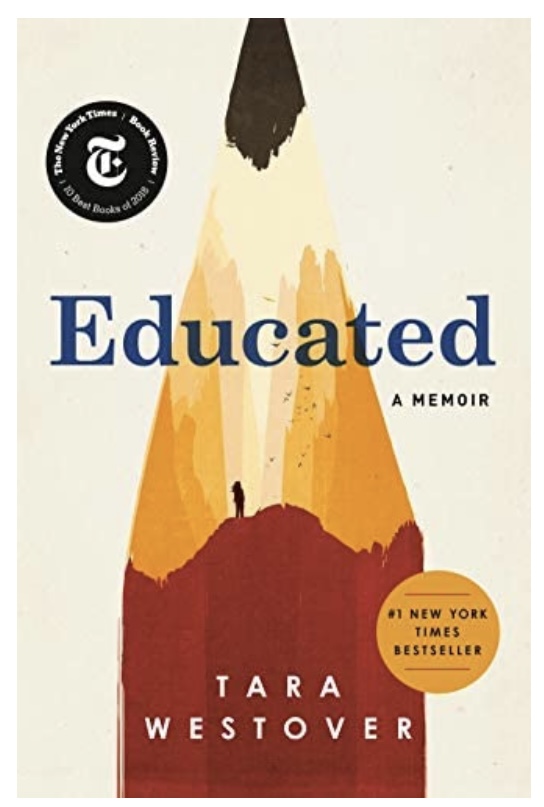
There were some nights after I read Educated, I couldn’t sleep. This book sparked a deep-rooted rage in me with how Tara’s parents treated their children. I couldn’t fathom how they could neglect their children as often as they did, but the rules found in religion are a powerful thing. An unhealthy obsession with religion is a typical trait found in someone with a mental illness. If you can identify with this in anyway, you must read Educated. Tara’s father believes the government is a system sparked by the devil and the school system is designed to brain wash children to lead sinful lives.
As a result, he refuses to send his kids to school. Tara’s story shows how children from the same parents don’t all end up okay. What’s the difference? An education. Tara’s journey presents the impact of receiving a solid education. Educated is a must read for those who want to see how the rules of religion can impact the mind, and what an education can do to save those born into dysfunctional families.
Get “Educated” HERE!
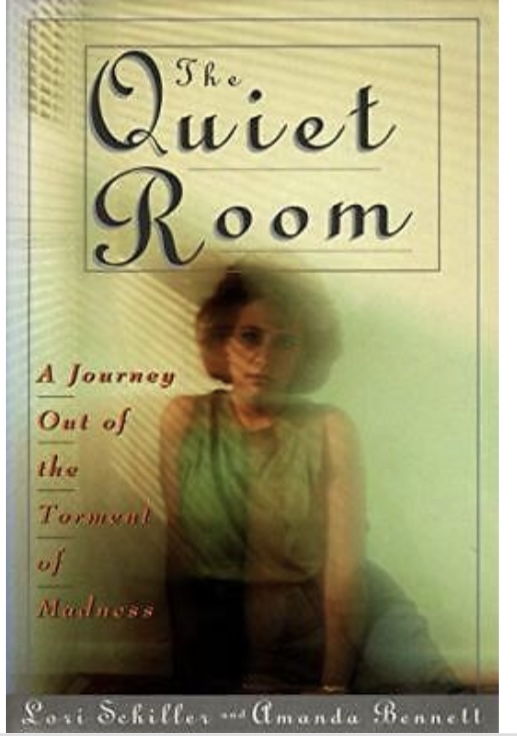
Mental health conditions are triggered by trauma, but what is traumatic for one person is not for another. Some of us are more sensitive than others, more emotional. While one person can live and thrive in New York City, another can have a psychotic attack, over stimulated by the city. This is what happens to Lori. This bright child from a well to do family, graduated at the top of her class. Once she was off on her own at Tufts University for college, she began to hear voices in her head telling her to die.
She ignored these voices until they eventually took over prompting her to do frightening things. Lori ends up in a mental institution where she is diagnosed with schizo-affective disorder. If you want a firsthand look about life in a mental institution, you have to read The Quiet Room. This book isn’t a light read, but it’s a good preparation for the emotions that will follow if you or your loved one has to spend time in a mental institution one day.
Do you have a favorite memoir that helped you better understand mental illness? Share in the comments below!

